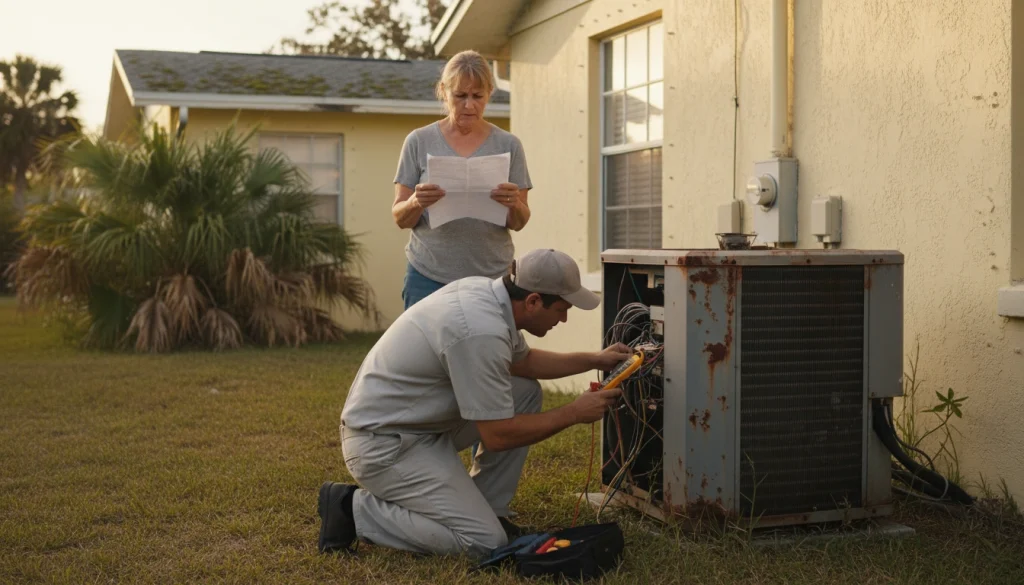As summer heat approaches, one of the most important decisions homeowners face is whether to repair or replace an aging air conditioning system. When your AC starts showing signs of trouble—like weak airflow, odd noises, or rising energy bills—it’s natural to wonder if a quick fix will do the job or if it’s time to invest in a new unit altogether. Understanding the key factors that influence this choice can help you make a smart, cost-effective decision over the next few months.

Old Age
One of the first things to consider is the age of your system. Most air conditioners last between 10 and 15 years, depending on usage, maintenance, and brand quality. If your unit is approaching or past that range, repairs may only offer temporary relief. Older systems tend to lose efficiency, rely on outdated refrigerants, and require more frequent service. If your AC is under ten years old and has been well maintained, repairing it often makes sense—especially for minor issues like capacitor replacements or small refrigerant leaks.
Efficiency and Performance
Next, pay attention to your energy bills and performance. An AC that struggles to cool your home or runs constantly may be losing efficiency due to worn-out components or low refrigerant levels. In some cases, a professional tune-up or part replacement can restore performance. However, if your energy bills continue to rise even after servicing, the system’s efficiency rating may have declined too much to justify ongoing repairs. Modern air conditioners are far more energy-efficient than older models, meaning a replacement could save you significant money over time.
Constant Issues and Repairs
The frequency and cost of repairs also offer important clues. If you find yourself calling your HVAC technician more than once a season—or if repair costs start adding up to more than half the price of a new system—it’s usually more economical to replace the unit. Constantly repairing an aging system can feel like putting a bandage on a long-term problem. Investing in a new AC brings peace of mind, improved performance, and lower energy costs.
How Does It Feel?
You should also consider comfort and air quality. If your system can’t maintain consistent temperatures throughout your home or leaves rooms humid and uncomfortable, these are signs it’s no longer functioning efficiently. Sometimes, simple repairs—like replacing a fan motor or cleaning coils—can make a big difference. But persistent comfort issues often indicate deeper inefficiencies in the compressor or ductwork that may warrant a replacement.
Uncomfortable Noises
Noise and unusual operation are additional warning signs. Grinding, rattling, or hissing sounds can point to failing motors, loose parts, or refrigerant leaks. While minor issues can be repaired, repeated noise problems or system breakdowns typically signal that the AC is nearing the end of its life span.
Look to the Future
Finally, look ahead to your long-term plans. If you plan to stay in your home for several more years, investing in a new, high-efficiency unit can increase comfort, boost property value, and reduce energy costs. On the other hand, if you’re moving soon, targeted repairs might be the better short-term choice.
When in doubt, schedule an inspection with a trusted HVAC professional. They can assess your system’s age, condition, and efficiency to help you make an informed decision. Whether it’s a repair to get you through another season or a full replacement for lasting comfort, expert guidance ensures you’ll stay cool and confident all summer long.
For a comprehensive look at your AC’s future and where to go from here, schedule an appointment with Conditioned Air Company of Naples, LLC. The Comfort People Since 1962.
